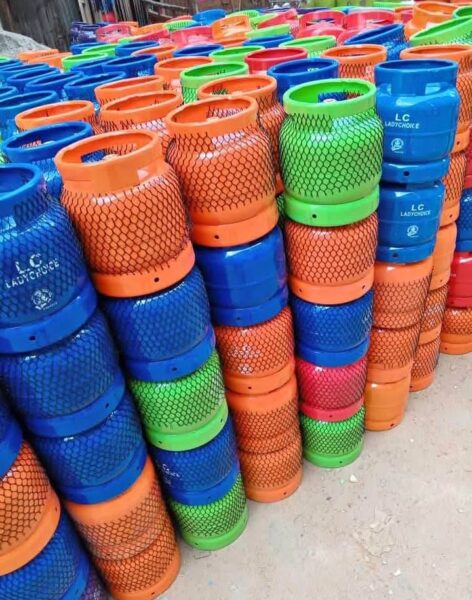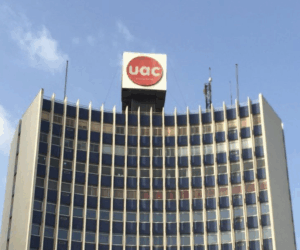

The strike action embarked upon by the Petroleum and Natural Gas Senior Staff Association of Nigeria (PENGASSAN) has disrupted supply chains in the distribution of gas and consequent price increase across Nigeria, Blueprint.ng reports.
Following this, most households have resorted to using charcoal, sawdust and firewood as alternative energy sources for cooking their food.
The three-day strike disrupted supply chains especially affecting distribution from major suppliers like the Dangote Refinery and ongoing maintenance at the Nigeria LNG Train 4 facility.
However, analysts noted that the scarcity and high price issues had remained persistent for about two years, getting to a head in October 2025.
Energy economist, Dr. Tunde Adeniyi, warned that heavy reliance on a few suppliers and weak contingency planning had left the domestic gas market vulnerable to shocks.
“This is a clear case of an essential sector being left vulnerable. Gas is a critical domestic energy source. Government should not allow disruptions like strikes or maintenance shutdowns to paralyse supply,” Adeniyi said.
He added that the market structure makes it prone to price manipulation and artificial scarcity.
…Prices rise by over 60% October


Market checks by this newspaper showed the price of a standard 12.5kg cylinder jumped to about N22,000 in October from N13,500 in September-a rise of roughly 63 percent.
Smaller 5kg refills climbed to about N9, 500, an increase of approximately 58 percent.
The spike has been felt immediately across Lagos and other states, where long queues have formed at gas plants and retail stations, with consumers rushing to refill cylinders before further rise.
“I spend more on refilling gas than on food now,” said Mrs. Funke, a food vendor at Mushin Market in Lagos.
“Before, N13, 000 could refill my big cylinder. Now it’s almost N22, 000. I had to increase the price of my rice and beans plate by N300 just to make a profit,” she said.
…Abuja families feeling the heat
Some households in Abuja expressed frustration on the scarcity of gas as well as its effects on their family.
Speaking with one of our correspondents, a resident of Federal Capital Territory (FCT), Mrs Vanessa Obi, said the situation had forced her to switch to firewood pending when the situation improves.
For Mrs. Obi, housewife, “the price of gas in my area has continually increased, the 3kg has increased from N8, 000 its original price, to nearly N15, 000 now. Even the scarcity of gas has continued with many shops closing in my area, now my family has switched to firewood as the problems associated with it are so much I can’t even cook without checking if the quantity of gas would be enough.”
Another FCT resident, Mr. Tunde Ibrahim, also said: “The scarcity of gas has increased with different fluctuation in the prices to get the gas filled. Last time, I went to fill a gas cylinder, I had to move around my vicinity, the places even have different prices with no effect on their quantity and even after getting to fill my 12kg gas, it wasn’t filled up as I was told by the attendant there, it had to do with the price. I’m currently planning other alternatives.”
Also, Aisha Ummi Muhammad said: “The scarcity of cooking gas has greatly affected my family. It has made meal preparation difficult and time-consuming, as we sometimes have to look for alternative cooking methods like using firewood or charcoal.”
Similarly, Maryam Kassim Yewa, a student also said: “The high cost of gas has increased our household expenses, making it harder to manage our budget. In addition, the stress of searching for gas and the smoke from other cooking means has caused discomfort and inconvenience for everyone at home and in school.”
A medical practitioner, Aishatu Isah Faruk, said “the scarcity and price of gas hasn’t affected me much because the one I bought three weeks ago has not finished.”
…Abakaliki
Expressing similar frustration, residents of Abakaliki, the Ebonyi state capital, called on the government to step in and save them from further economic hardship.
Before now, the price of cooking gas was N1, 050, N1, 150 in gas stations while retailers sold N1, 200 and N1, 300 respectively in the state.
But with the increase, the price of cooking gas skyrocketed to N1, 500, representing a N300 to N400 per kilogram.
Increase in the price of cooking gas has pushed some back, hence the resort to firewood and sawdust.
Lamenting the situation, a resident of Abakaliki, Mrs Nneka Ukpa, said: “I don’t know what the government wants from us, we know the price of cooking gas has not been steady, it has fluctuated from N1, 050 to N1, 200. As a matter of fact, the gas I bought before this one was N1, 050 per kg at LOPA gas station but this one is N1, 500 naira per kg. I went to those selling by the roadside and they sold N1, 500. To my surprise this gas station is also selling at the same price.”
“I am a civil servant and my salary is about N90, 000 naira, now to fill my 10 liters gas cylinder I will spend N15, 000 remaining N75, 000. What will this do for me? We are 7 in my house and the balance I have will not even feed us for two weeks, talk more of other things, my dear, I have improvised and resorted to using sawdust as an alternative to gas,” said a housewife, Mrs Chinasa Odo.
…Kaduna
In Kaduna, Kaduna state, the price of cooking gas rose sharply to ₦1,400 per kilogram, sparking complaints from residents struggling to cope with the high price of goods and services.
At Edi Gen Filling Station in Kaduna, a gas attendant told Blueprint that the product, which previously sold for ₦1,100 per kilogram, increased gradually to ₦1,200, then ₦1,300, and now ₦1,400.
Residents expressed concern over the development, describing it as unbearable.
One of them, Sodiq Alhassan, said he used to refill his 12kg cylinder for ₦13,300 but can no longer afford it at the current price of ₦16,800.
“Such a dramatic increase is unbearable; we are urging the government to do something about it,” he said.
A student of Kaduna Polytechnic, Nasiru Aremu, also lamented the situation, saying he could not afford to buy gas at Karama Station in Tudun Wada due to the rising cost.
“I’m going back to my apartment to use charcoal,” he said.
…Ilorin
In Ilorin, the Kwara state capital, the story is not any different as one kg of cooking gas which sold for between N1, 000 to N1, 050 has jumped up to N1, 500.
Despite the spike, many filling stations claimed to have run out of stocks leaving residents to walk or transport themselves several distances from their homes before they could get the product.
“This is an additional cost but we have no options. Charcoal is not even a good option, the charcoal we have these days hardly serves the purpose. It turns into ashes in a few minutes, we just hope this situation will not continue like this”, said some women who spoke with Blueprint.ng correspondents.
…In Uyo too
In Uyo, Akwa Ibom state, Blueprint checks across Uyo metropolis revealed a sharp increase in the price of cooking gas.
It was observed that while some mega stations were under lock, other mega stations increased the price of the commodity, except AA Rano, which maintains its price at 1,200 per kg.
While mega stations moved the price from N1, 330 to N1, 450 per kg, many retail outlets have increased their prices to unregulated amount of N1, 500, N1, 550, N1, 600 and N1, 650 per kg.
This indicates a 9.02 percent increase for the mega stations and 24.06 percent increase for the retail outlets.
This development has triggered distress among consumers as many of whom are solely dependent on cooking gas for their businesses.
Joy Peters, a food vendor who spoke with one of our correspondents lamented that the increase in cooking gas has affected her business thereby pushing her to increase her food prices.
She said: “I used to sell a plate of rice at N1,000 when cooking was sold at N1,330 per kg but just this morning, I bought cooking gas at N1,650 per kg and I will add price to my food if not, I will lose out”.
Mr Anthony Williams, a businessman, expressed disappointment that despite Nigeria wasting gas through flaring, cooking gas was increasing daily unchecked making life unbearable for a common man in the street.
“In this area, there is no cooking gas to buy because some outlets here are locked and I want to call on the government to begin to regulate prices of the commodity because we do not have any alternative,” Williams said.
Also speaking, Mrs Kindness Joshua, a food vendor, also begged the government to swing into action and bring down the price of cooking gas so that most people will not go out of business.
…Retailers blame distribution chain
To members of the Liquefied Petroleum Gas Retailers Branch of PENGASSAN, the situation was worsened by alleged price inflation along the distribution chain.
Ayobami Olarinoye, chairman of the retailers’ branch, said major off-takers were supplied at much lower rates than those charged further down the chain.
“Dangote refinery sold at N715 per kg to some off-takers and major distributors. But some of these distributors turn around to sell at N1, 500 to N2, 000 per kg. This is why consumers are paying so much,” he said.
Small-scale retailers say they are being caught between high depot prices and angry customers.
“We don’t make extra profit from this,” said Mr. Solomon Adeyemi, a gas retailer in Ikorodu.
“Customers now insult us thinking we are the ones increasing the price. But the cost from the depot is already too high, and sometimes we even struggle to get supply,” he added.
Industry players and retailers are urging the government to adopt a more sustainable regulatory framework that prioritises consumer protection and stronger monitoring of the supply chain — from refinery and LNG production to final distribution — to deter hoarding and arbitrary mark-ups.
…FG urged on sanction
Recently, Minister of State for Petroleum Resources (Gas) Ekperikpe Ekpo pledged government action against hoarding and unjustified price increases, promising to clamp down on marketers found inflating prices or withholding supply.
But many consumers and consumer rights advocates say past enforcement had been weak and remained skeptical that immediate relief would follow.
“It is ironic that in a gas-rich country like Nigeria, ordinary people can’t afford to cook,” said consumer advocate, Mrs. Bose Ajayi, adding that “when two elephants fight—government and unions—it’s the people who suffer.”
They, therefore, called on the federal government “to wield the big stick on those hoarding the commodity and engaging in artificial scarcity of the commodity to serve as deterrence to others.”
However, analysts warned that the price shock is already pushing some households back to cheaper and dirtier fuels such as charcoal and firewood, undermining national efforts to reduce deforestation and promote cleaner cooking alternatives.








